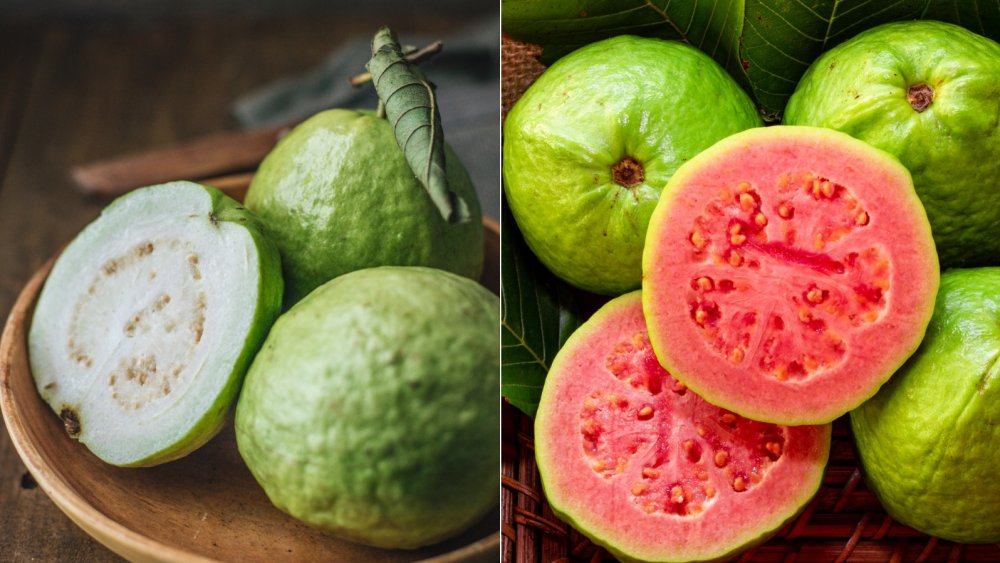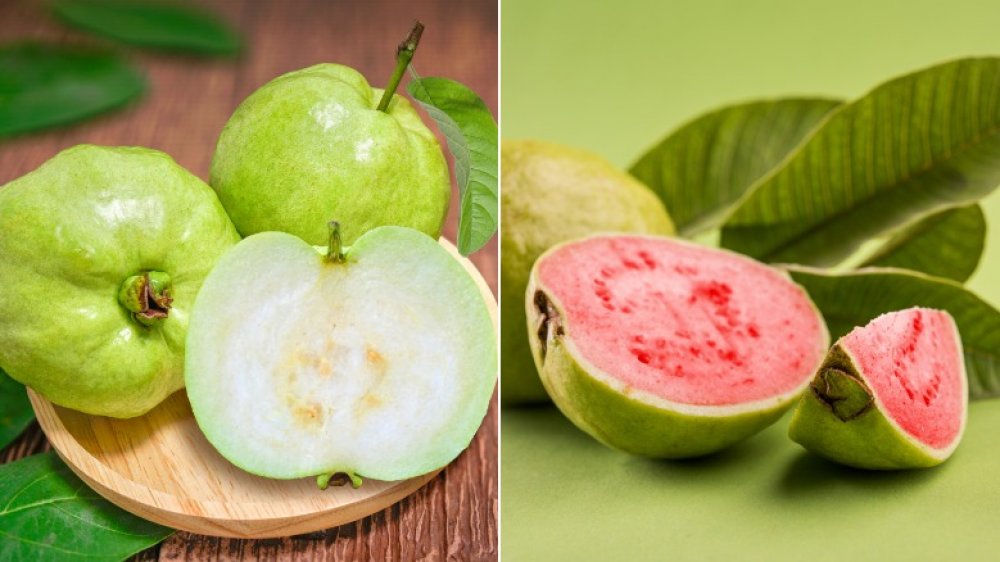White Guava Vs. Pink Guava: What's The Difference?
When you think about guavas, your mind will most likely go to the sweet and juicy little fruit that's perfect to munch on as a snack or enjoy in a drink or smoothie. If you're native to Florida — specifically Miami — you're very familiar with pink guava. If you're native to California and Mexico, you've probably consumed your fair share of white guavas (also known as the Mexican white guava, according to Kitchn).
The New World Encyclopedia explains that there are over 100 varieties of guava within the genus Psidium of the myrtle family and that these plants typically carry tough, dark leaves that surround an edible fruit. The guava plant is native to Mexico, the Caribbean, Central America, northern South America, and can now be found in tropical areas within the United States. The name guava is said to be derived from the word guayaba (which is a Spanish word) from the Taíno, a pre-Columbian indigenous tribe native to the Caribbean.
The differences between pink and white guavas
The most noticeable difference between the two cousins is their color. MyRecipes explains that pink guava is characterized by its bright yellow skin and pink flesh. But what makes it pink? According to Specialty Produce, pink guava possesses it's pink hue because of a compound called carotenoid. Live Science reports that carotenoids are the compounds that are responsible for giving fruits and veggies their bright red, yellow, and orange hues.
White guava, on the other hand, doesn't have enough carotenoid to have its overall color affected, explains a user in a Quora forum. Now as far as taste goes, it's a matter of personal preference. MyRecipes explains that while white guava is moderately sweet, pink guava is less sweet but has a stronger scent. A LinkedIn report outlines how starkly different the two are in that pink guava possesses more water, less brix (the measurement of sugars in a piece of fruit), less starch, less vitamin C, and can sometimes be seedless. The same report then details how white guava is a polar opposite in that it's sugary, has plenty seeds, and carries lots of starch and vitamin C. The more you know!

